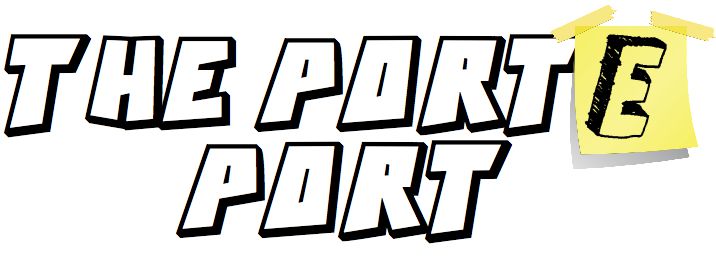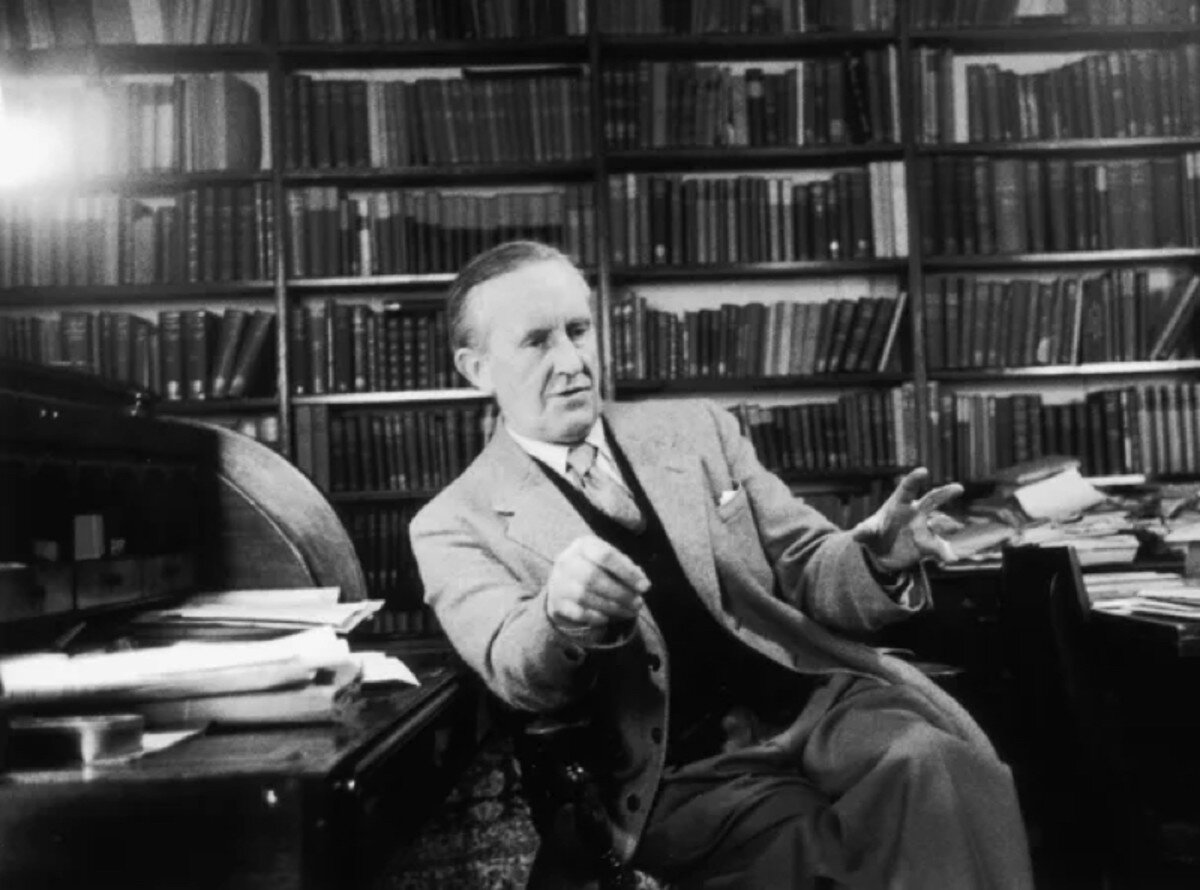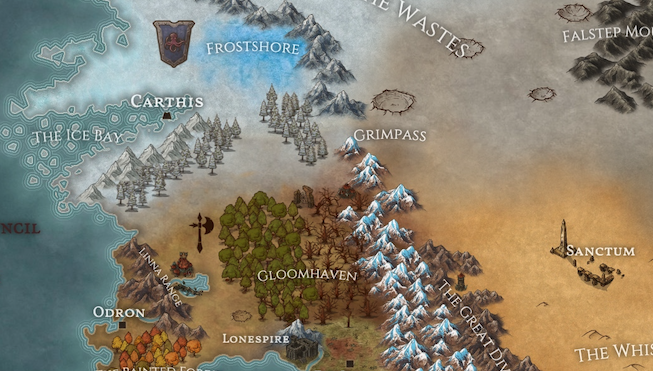Tolkien Tuesday: 3 Tolkien Quotes to Inspire Your Writing
Here’s the thing about articles featuring inspirational quotes…
...they are mostly useless clickbait.
That’s right, I said it.
Here you are in this post, and I’m admitting I pulled you here because, typically, having an article about quotes is going to get you to click through.
But I hate it when the post offers no other insight.
I want something with a little more substance.
Plus, quotes can basically be used however anyone pleases because most are short and out of context.
It’s the long ones that can really pack a punch by the time you read through. But those aren’t catchy, and you can’t put them into swirly font with a camper van on a wood plaque that says, “Not all who wander are lost.”
Have fun, Pinterest mom who saw that at World Market and put it on your gallery wall. You just bought a geeky Lord of the Rings quote without even realizing it.
On the other hand, quotes can truly inspire us.
They are nuggets of wisdom from those we admire, and it feels a little bit like they are mentoring us. Even long after those people are gone.
So, instead of giving you just three inspiring Tolkien quotes and ending the article without any thought or explanation, let’s look at what they mean.
Let’s find how to apply them to our writing life.
Inspiring Tolkien Quotes to Actually Apply to Your Writing Life
“I wisely started with a map, and made the story fit (generally with meticulous care for distances). The other way about lands one in confusions and impossibilities, and in any case it is weary work to compose a map from a story.” –J.R.R. Tolkien
When we think of The Lord of the Rings, one of the first thoughts that comes to mind is the map of Middle Earth.
And that’s usually where this quote stops.
Ooo, look at this cool map. (It is cool though, I mean come on.)
But this has so much more advice for us than to think of a cool map for our own fantasy story or to just point to the intricate world Tolkien created.
J.R.R. Tolkien is literally telling you how to start your story. The great master of the fantasy genre is laying out how you begin to tackle the long task of writing a book.
So maybe we should pay attention!
This isn’t the first time I’ve referenced this quote either. I’m a big fan of this approach to start your story.
Starting with a map lets you visualize your story world. You have references for where all of the action will take place.
Otherwise, it’s just this cloud of obscurity in your brain: This story plot happened in this town, and now the characters have to go...over here somewhere to a place, I guess, that’s there.
That’s a lot of work for you to build the story and world at the same time.
Having a map can help you come up with new plot ideas too. Or new challenges for your characters. With a visual, there’s something to work off of to make your writing easier.
So let’s dive into an example.
As you may have guessed by now, I’m kinda a geek. So when I DM for Dungeons and Dragons, which is bad enough as it is, I make sure to make my own maps of the world because that’s half the reason I DM in the first place.
And it gives me ideas as I create that map.
I also do this for my fantasy story ideas, but those are under wraps, so I point to D&D instead.
Here’s part of one of my maps:
Did I write an article just to show this off? Maaayybe…
It’s made with Inkarnate, and no that’s not an affiliate link or anything, I just think they’re cool.
Most of the story I’ve thought of has to do with below this part of the map.
But I can think of new story plot points just from looking at this.
I don’t know what’s happening in the icy world of Carthis, but why are they up there? Seems like there are better resources to the south.
So I start thinking about what’s keeping them from migrating south. Tradition and stubbornness? Maybe it’s the physical barriers of mountains and forests? Or something in the south that is dangerous.
I like that last one. I already have a part of the story that deals with Orcs in and around the Gloomhaven forest. I mean, if you have a name like that, you’re gonna have Orcs.
So maybe there was an ancient war between the Orcs and the people of Carthis. The Orcs won, and the founders of Carthis migrated north.
And what’s their way of life now? Warrior past. Fishing. Maybe they raid the coastal towns like Odron to the left of the map, not unlike Vikings.
So that puts Odron in a tight spot. They have raids coming from the sea and Orcs to the east.
Bam.
The inklings of a story. There’s tension, history, and a world your characters would have to deal with.
And this is just from 10 minutes of looking at a map.
“Fantasy is escapist, and that is its glory. If a soldier is imprisoned by the enemy, don’t we consider it his duty to escape?. . .If we value the freedom of mind and soul, if we’re partisans of liberty, then it’s our plain duty to escape, and to take as many people with us as we can!” –J.R.R. Tolkien
Why do we love the fantasy genre?
Like other books, it takes us on an adventure. But to the full extent of that statement.
We end up in an entirely different place, yet somehow feels familiar—a world of new history, culture, and creatures. We get to escape from our day to day with something fantastical.
And all while exploring what it means to be human.
Life has plenty of terrible realities that we must face. Sometimes we need to end our day with a book that takes us as far away as mentally possible.
And it’s your duty as an author to give that experience.
Your reader must feel immersed in the story. That world has to feel alive. And you started with a map, so you’re already putting your best foot forward.
Think of this as your safety net when you write.
I know that sounds kinda bonkers, but hear me out.
We can get caught up in writing the perfect story that catches editors/agents/publishers’ eyes and gets us living this dream author life. Or something like it.
I’m the first to admit that I get caught up in it. This whole site is dedicated to storytelling techniques to make better stories.
But let’s not forget what a fantasy book is all about.
Escape.
We need to remember the relief we provide. Make the characters real, not so a publisher picks you up because they see these well-written, dynamic characters, but because that’s what will make your story feel real.
Provide the escape route for everyone reading your book.
God knows we need it.
“Faithless is he that says farewell when the road darkens,’ said Gimli.”
That’s where this quote usually ends. But without the other part, you miss something so important.
“Maybe,’ said Elrond,'but let him not vow to walk in the dark, who has not seen the nightfall.”
This is kinda harsh on the surface.
Can Elrond just chill for two damn seconds?
This is as happy as he gets
But it’s actually a great reminder that we need to be a little more realistic than idyllic phrases and empty promises.
Which is funny, since the first part of this quote is used alone most of the time.
What can this one-two punch of a quote mean for us writers?
A lot.
First and foremost, we need to be realistic.
The journey to becoming successful–however you define that–is a long road.
If you want to be published, write a manuscript, submit short stories, create a blog, become a copywriter, any kind of writing–it’s a journey.
There’s ups and downs, and we need to be honest about what we are getting into.
Writing, and any pursuit of creativity, is going to be full of disappointment. It’s easy to say that we will push through it when we encounter it.
Before we really set out to do this whole writing career thing, the road looks daunting. But we try to seem like we know the risks.
“Oh, I don’t even care what people say.”
“I’m just doing this because I love writing.”
“I know some things will be tough, but I’ll stay committed.”
“I’m really going to go for it this time, I’m serious!”
Then you get on that road, writing every day, tired of getting up early to sit down at a desk–actually–wish you had a desk, tired of no one reading anything you’ve written, disappointed your friends and family aren’t sharing your stories, wondering why your pins aren’t attracting anyone to your site, looking at another rejection in your inbox, stalling on editing that new story because it didn’t turn out the way you hope, why put in all that work if it’s just going to get turned down again, maybe you aren’t cut out for this at all, if you could just get a day off finally then your writing would improve, fuck it, you’re gonna sleep in today.
It builds up.
Being on that road, the dark nights alone on that journey are way more difficult to actually experience than you imagined.
And you walk away because you thought it wouldn’t be like this.
But that doesn’t mean dedication and making a commitment is a bad thing.
That’s going to be the only thing that saves you when the road does darken.
Your love of writing has to be faithful to pull through.
So who’s right in this conversation? Gimli or Elrond?
Both.
You need both a promise to yourself and realistic expectations.
Set goals that work for you.
If you read somewhere that you have to write 2000 words a day to really get better and finish your book and you honestly think you can keep that pace...you might walk away when reality hits you in the face.
But if you can write 746 words and call that a victory because you are exhausted from work and need to get right back up in the morning and do it all again, you may see the end of the road.
We have to be honest with ourselves. Making a writing career is extraordinarily difficult. It takes real sacrifice, and that’s easier said than done.
So look ahead on that road and start setting your goals. But keep a manageable pace. Be realistic to the task ahead of you, and you may end up surprising yourself when you get to the end.
Because now you face things realistically.
Rejection stung, but you knew it would and suck it up. Your writing becomes stronger now with each one.
Your family stopped liking your posts after the third week into your blog...but it’s not for them, is it? Their inactivity is not an indicator of your failure.
You’re tired, so you make sure you either go to bed earlier or adjust your schedule to find time to rest.
You’re afraid to write another short story and get rejected again...but you will never get published with it sitting hidden in a folder on your desktop.
This is what it means to be realistic about the writing journey you have before you.
But promise yourself to give your dream a real shot.
And that it takes a lot of work.
That’s absolutely worth it.
If you like all this geeky Tolkien stuff applying to your writing, then get more by signing up for my newsletter. We will hone our writing skills by exploring our favorite books, movies, shows, and games to see the storytelling techniques they use. Check it out:











